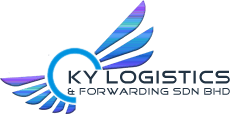New Year’s Day is right around the corner—and if you haven’t already, it’s time to start thinking about what changes you’re going to make to improve your business in 2015.
As you evaluate what’s worked and what hasn’t, don’t forget to consider how partnerships with your customs broker and freight forwarder have added value to your company in the last year. If you’re not sure if you’re in a mutually beneficial relationship or if you should look elsewhere, ask yourself these six questions:
1. Do I have a specialized product line or type of import?
If the answer is yes, you may wish to find a broker who either specializes or has a great deal of expertise in clearing your type of products. For example, textiles, apparel and alcoholic beverages have numerous laws and regulations that apply to their importation. Not every broker is experienced in handling these products, and choosing the wrong broker could cause you trouble.
2. How many ports will I be using for imports?
If you are importing through several ports, you should hire a broker with their own offices in those ports. Your local one-office broker may give you great service in their home port, but they will have to use sub-agents in other ports and thus will lose a great deal of control. By the same token, if you are only importing through one port, the smaller, one-port broker may be perfect for you since they can often give you much more personalized, hands-on service.
3. Is automation easy with this partner?
Any freight forwarder or broker—regardless of size—must be fully automated with full connectivity to the tools necessary to partner with your company.
- For freight forwarders, make sure you are requesting and receiving a copy of what was filed in AES on your behalf and that you are auditing the information. If it was not done properly, get it corrected as soon as the error has been identified.
- For brokers, that means access not only to U.S. Customs, but also to various web portals and cargo tracking sites. Your broker should be able to communicate easily with you via telephone, e-mail, and fax.
4. What is the broker or freight forwarder’s general reputation?
Don’t automatically believe what the brokers or freight forwarders’ marketing materials say about their capabilities and reputation. Your best source of information is from their own customers. Ask for references. You can also get a relatively non-biased opinion from local ocean and air carriers.
5. Do I need a dedicated account representative?
If your volume of imports is large enough, you should have a key operational contact at your broker or forwarder who will coordinate all aspects of your account. In the least, you should have personal contact with someone who can help you answer your questions and who knows the basics about your company.
6. Do we have a written working agreement?
We recommend having a written agreement to make sure you, your freight forwarder, and your broker are on the same page about every aspect of your partnership. The agreement should include the scope of work that you want the broker to perform, the fee structure for each service performed, and operational procedures and contacts. This document should be available to all of your personnel who work directly with the broker or freight forwarder. You should periodically review the agreement with your broker or freight forwarder and make adjustments to reflect any changes in your business situation.
7. Are there warning signs?
If you’ve just chosen a new customs broker or freight forwarder or have recently changed, you will probably experience a shakedown period. You should expect some delays and plan for adjustments. However, if the adjustment period lasts longer than a month, you should reevaluate your situation. If you have any problems, call a meeting after two weeks to try to nip them in the bud. While mistakes happen, unresponsiveness, rude behavior, and improper activity shouldn’t be tolerated.
It is vitally important that you select a customs broker who can handle your customs business efficiently and accurately, because a good broker is an invaluable partner. By working closely with the broker on classification and valuation issues, you can minimize entry errors and enhance compliance. The wrong partner, however, can cost you with delayed clearances, errors on entries, and even fines.
Source : http://www.shippingsolutions.com/blog/how-to-choose-the-right-customs-broker-and-freight-forwarder



